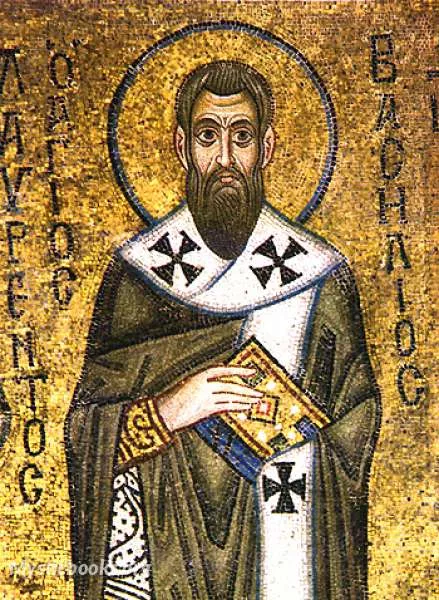Basil of Caesarea
Basil of Caesarea, also called Saint Basil the Great. He was an influential theologian who supported the Nicene Creed and opposed the heresies of the early Christian church, fighting against both Arianism and the followers of Apollinaris of Laodicea. His ability to balance his theological convictions with his political connections made Basil a powerful advocate for the Nicene position.
In addition to his work as a theologian, Basil was known for his care of the poor and underprivileged. Basil established guidelines for monastic life which focus on community life, liturgical prayer, and manual labor. Together with Pachomius, he is remembered as a father of communal monasticism in Eastern Christianity. He is considered a saint by the traditions of both Eastern and Western Christianity.
Basil, together with his brother Gregory of Nyssa and his friend Gregory of Nazianzus, are collectively referred to as the Cappadocian Fathers. The Eastern Orthodox Church and Eastern Catholic Churches have given him, together with Gregory of Nazianzus and John Chrysostom, the title of Great Hierarch. He is recognized as a Doctor of the Church in the Roman Catholic Church. He is sometimes referred to by the epithet Ouranophantor, "revealer of heavenly mysteries".
Books by Basil of Caesarea

The Hexaemeron
The term Hexameron refers either to the genre of theological treatise that describes God's work on the six days of creation or to the six days of creation themselves. Most often these theological works take the form of commentaries on Genesis. As a g...

Book of Saint Basil On the Spirit
Basil of Caesarea's 'On the Spirit' is a theological treatise written in 374 AD at the request of Amphilochius of Iconium. The work addresses the Arian heresy, which denied the full divinity of the Holy Spirit. Basil argues for the consubstantiality...
